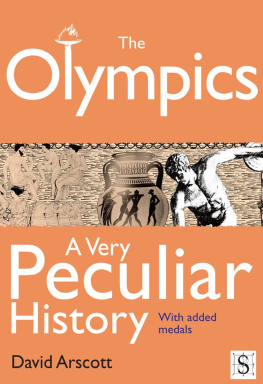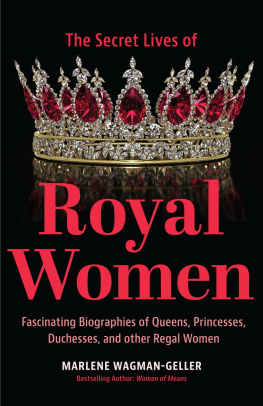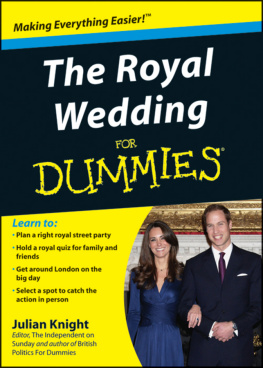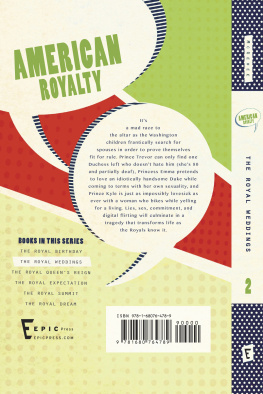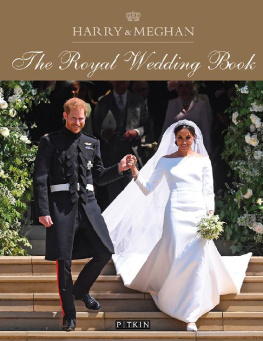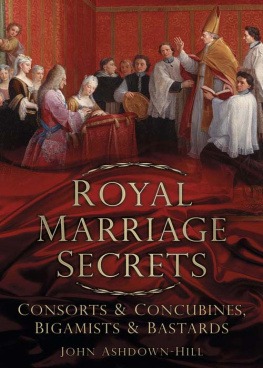Title Page
ROYAL WEDDINGS, A VERY PECULIAR HISTORY
With added Majesty
Written by
Fiona Macdonald
Created and designed by David Salariya
Publisher Information
First published in Great Britain in MMXII by Book House, an imprint of
The Salariya Book Company Ltd
25 Marlborough Place, Brighton BN1 1UB
www.salariya.com
www.book-house.co.uk
Digital edition converted and distributed in 2012 by
Andrews UK Limited
www.andrewsuk.com
Editor: Jamie Pitman
Assistant editor: Jodie Leyman
The Salariya Book Company Ltd MMXII
All rights reserved. No part of this publication may be reproduced, stored in or introduced into a retrieval system or transmitted in any form, or by any means (electronic, mechanical, photocopying, recording or otherwise) without the written permission of the publisher. Any person who does any unauthorised act in relation to this publication may be liable to criminal prosecution and civil claims for damages.
Every effort has been made to trace copyright holders. The Salariya Book Company apologises for any omissions and would be pleased, in such cases, to add an acknowledgement in future editions.
Visit our website at
www.book-house.co.uk
or go to
www.salariya.com
for free electronic versions of:
You Wouldnt Want to be an Egyptian Mummy!
You Wouldnt Want to be a Roman Gladiator!
You Wouldnt Want to Join Shackletons Polar Expedition!
You Wouldnt Want to Sail on a 19th-Century Whaling Ship!
Introduction
At last! Its official! After years of practising (as the bridegrooms proud father rather unromantically put it), the worlds most photographed young couple have named the day (29 April 2011). Yes, His Royal Highness Prince William Arthur Philip Louis of Wales and Miss Catherine Elizabeth Middleton are going to get married.
The news is welcome, but comes as no surprise. And there are surely many more important events happening worldwide. Nevertheless, according to those who calculate this sort of thing, Prince Williams wedding looks set to be the biggest media event in history, at least in terms of audience numbers.

No fairytale
Mercifully, the very silly word fairytale is not being bandied about to describe Prince Williams forthcoming marriage unlike the wedding of his father and mother in 1981. However, as at any wedding, all who join in if only by watching the celebrations on television will probably want to wish that the new couple lives happily ever after.

Why?
Why apart from our natural pleasure at seeing people who seem happy, and apart from our sentimental excitement at the start of any new romantic enterprise do we care?
Hello strangers
Attending a wedding is a sign of closeness, friendship, family belonging. But most of us will never meet this years princely bride and groom or any royals, anywhere and we certainly wont get to know them as friends.
Some of us may not believe in monarchy, or in the institution of marriage. We may not follow the Christian faith (any wedding held in a church is, after all, a solemn religious occasion). We may even feel outraged by public displays of inherited wealth, power and privilege, and consider formal, uniformed pomp and circumstance a ridiculous anachronism in the egalitarian 21st century. We may find lavish spending on flowers, frocks, food, drink and general flummery distasteful in a time of recession.
Love - and marriage?
Love seldom falls out of fashion, but getting married has been getting steadily less popular for the last hundred years, and more. According to UK government statistics, there were 232,990 marriages in England and Wales in 2008 (the last year for which figures have been published). This is the lowest number since 1895, when the population was only just over half the size it is today.
Now, in the early 21st century, statisticians tell us that only 22.8 single men out of every 1000 are likely to marry in any one year, and 20.5 single women. When similar statistics were first calculated, in the 1860s, the equivalent figures were 58.7 per 1000 for men and 50 per 1000 for women.

Not to be sniffed at
In 1947 there was outrage among royal officials when a company in the north of England put on sale a souvenir handkerchief to mark the wedding of Prince Williams grandmother, now Queen Elizabeth II. Not only was the handkerchief printed (incorrectly) with the Union Jack, it also bore rather crudely drawn portraits of the bride and groom. In spite of protests, production of the handkerchief could not be stoppped; it was breaking no laws. At last, palace officials conceded that, as a souvenir, the hanky might just about be acceptable so long as it was never, ever used!

So why all the fuss when a royal wedding is announced? Why the miles of print and acres of pictures? Why the hints and denials, the deferential interviews, the guesses and gossip? Why the souvenirs tacky or tasteful? Why the flood of commentary, from the patriotic to the prurient? And why books like this?
Is our enthusiasm for all things royal because
the CROWN
is something set above
The jangle and the jargon and the hate?
Poet Laureate John Masefield,
On the Coming Marriage
Surely not! Those words might just have been true in 1947, when they were written, but few people would agree with them today except, perhaps, in a strictly constitutional sense.
If the British monarchy did not exist, wed probably have to invent it, or else go to the trouble of choosing a president to be short-term head of state instead. But wait! Look across the Pond! Some presidencies can begin to seem strangely monarchical:
Chelsea Clinton Marries
in Royal Wedding
Reuters headline, 1 August 2010
A reflection of ourselves?
It has been said that monarchyis about magic. Perhaps. It is rather more likely that monarchy is a mirror reflecting our tastes and values back to us but in an extremely selective way.
Over the centuries, royal families have changed, along with the societies theyve been rooted in. And so today, in an age of obsession with cash, consumer brands and celebrity, the royals are the ultimate famous family. We build them up to reflect our dreams and fantasies. We knock them down, projecting onto them, as individuals, our collective disappointments and fears (Its only fair to add that the royal mirror also reflects several rather more positive social concerns, such as heritage and conservation).
Public appetite
Eagerly, oh so eagerly, we devour real or manufactured news about royal families. We cannot see too many photos of royal clothes, houses, parties, jewels and holidays, or listen to too much royal gossip preferably about royal wrongdoings and/or royal love-lives. (Even better, as a way of selling books and newspapers, if the two are combined.)
Once the [royal] brides were English and pretty, the floodgates of schmalz opened.
Historian David Starkey in the Daily Mail ,
21 November 2010
Why do we need to do this? Because we admire real-life royal people and their carefully created images? Because looking at wealth and privilege allows us to escape from harsh reality in tough economic times? Because the royals are ambassadors for (yes) or symbols of (surely not!) our nation? Or simply because young, attractive couples like Prince William and his fiance are jolly good free entertainment, to amuse or distract us whatever the cost to their own personal privacy and peace of mind?
Next page

